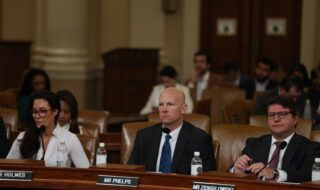February 1, 2022
Single-Payer Health Care Bill Dead for the Year
The most talked about legislation in California and in other parts of the country is dead for the year.
Introduced last year, the clock was ticking on Assembly Bill 1400, which called for making California the first state in the nation to institute a comprehensive single-payer health care system that would have precluded all others (private insurance, Medicare, Medi-Cal, Tri-Care). It had until January 31 to either pass the Assembly or die.
The rush was on. After passing the Assembly Health Committee 11-3 on January 12 and the Assembly Appropriations Committee 11-3 on January 20, AB 1400 looked like it might have the wind behind its sails by the legislative deadline for bills to either pass their house of origin or die for the rest of the session. But in the end Assembly Member Ash Kalra, lead author of AB 1400, could not find the votes for passage and pulled it from consideration before a vote could be taken.
Assembly Constitutional Amendment 11, the financing mechanism for AB 1400, is also dead. The scope of AB 1400 was audacious, herding every single health care decision into one state agency, CalCare, and its price tag was astronomical.
In an NFIB California Podcast, Assembly Member Jordan Cunningham, an opponent of AB 1400, said “The Cal Care Trust Fund, even with $162 billion in tax increases, will be insolvent Day 1 to the tune of $70 billion.”
NFIB California was part of a coalition fighting to defeat AB 1400. In a coalition letter to Assembly Members, it was pointed out that, “Single-payer health care must not be confused with free health care – there’s nothing free about a government run health plan. AB 1400’s funding mechanism, ACA 11, proposed increasing Californians’ taxes hundreds of billions of dollars to fund the government run health care system. Proponents have indicated the taxes will generate $160 to $170 billion annually. This proposal would be the biggest tax increase in state history and punish Californians by increasing personal income taxes, payroll taxes, and gross receipts taxes. This enormous tax increase would occur at a time when California is experiencing a $31 billion surplus – a surplus that pales in comparison to the annual expenditures a government run health system would demand.”
Why the Need for Single-Payer?
- “California Reached Health Coverage Milestone With 94% of People Insured in 2020” — Health Policy Brief, UCLA Center for Health Policy Research
- “Chances are good that you can get health insurance for $10 or less a month, according to Covered California, because two out of three Golden State residents qualify for premiums in that range in 2022.” — The Sacramento Bee, Jan. 26, 2022
Even the Media Were Skeptical
- “The best argument against California’s taking over management of health care for every Californian may be the Employment Development Department’s abysmal record of mismanaging the delivery of unemployment insurance and disability insurance benefits to those unable to work,” wrote Dan Walters in CalMatters. “When you think about it, there’s a remarkable similarity between what EDD does — or more correctly, what it’s supposed to do — and the single-payer, centrally directed health care system that those on the political left so fervently desire.”
- “Some supporters are hailing it as a California version of federal ‘Medicare for all.’ But really it’s Medicare for nobody. Californians on Medicare would be shifted into the new state-run ‘CalCare.’ No more Medicare in the nation’s most populous state. Nor Medi-Cal, the California version of Medicaid insurance for poor people. And private healthcare insurance would essentially be out of business. Everyone would be transferred into CalCare,” wrote George Skelton in the Los Angeles Times. “The assumption is that Sacramento can manage such a massive endeavor. There’s plenty of reason to be skeptical.”
For now, it looks as if Californians can breathe a collective sigh of relief at the demise of AB 1400, but this will not be the last people hear of the issue.
NFIB is a member-driven organization advocating on behalf of small and independent businesses nationwide.
Related Articles















